This article was co-authored by Deb Schneider, LCSW, PPSC. Deb Schneider is a Licensed Clinical Social Worker in private practice in Oakland, CA, and a Program Manager for the Weiland Health Initiative at Stanford University. With over 15 years of experience, she specializes in creating safe spaces, respectful of marginalized identities, at the high school and college levels. Deb holds a Bachelor’s degree in Sociology and Women's Studies from Clark University and a Master of Social Work (MSW) with Health Concentration from the University of California, Berkeley School of Social Welfare.
wikiHow marks an article as reader-approved once it receives enough positive feedback. This article has 13 testimonials from our readers, earning it our reader-approved status.
This article has been viewed 81,414 times.
Whether you are LGBTQ yourself or an ally, it's a near-certainty that you've crossed paths with homophobes. Homophobia manifests along a spectrum; some people merely betray a mild discomfort toward the idea of gay love, while others let their intolerance carry them to acts of verbal or physical abuse. You may encounter homophobic friends and family—people you love—and you may come up against homophobic strangers. No matter the situation, there are strategies that you can take to hold your ground and preserve your dignity.
Steps
Keeping Calm and Carrying On
-
1Keep a level head. Don't feed intolerance; don't let sharp words poke holes in your spirit. Maintain your own balance, and keep your mind unclouded by anger, fear, and hate. You cannot always change what others think of you, but you can always control how you react.
- Let homophobic rhetoric defeat itself. If onlookers see that you can remain calm in the face of adversity, the homophobic person will start to come across as the crazy one.
-
2Accept your identity in the face of adversity. Realize that this is the way you work. You can't "pray the gay away." You are a human being who feels love and/or sexual attraction to someone of the same gender, or you are a person who identifies as a gender other than the one assigned at birth – and that is 100% okay. Love is love, and you are worthy of all the love you can handle. Love yourself, and keep telling yourself that it's okay to be yourself, even if some days you don't believe it.
- At times you feel particularly down on yourself, take time aside from the chaos. Go to a bathroom. Look in the mirror and say "I am valid. My name is ______, and I am ___(sexual orientation, gender, whatever is in question)___. And I am valid." A little reassurance often helps, even if it comes from yourself.
Advertisement -
3Avoid confrontation. Don't engage the homophobe, and ignore the offences until you can get away. If you are a member of the LGBTQ community and you come across someone homophobic, it may be best to pretend as though you haven't heard anything. Go about your business as usual, and don't feed the negativity. Do not hesitate to take action, however, if this person is harassing or hurting someone else.
- You have every right to stand up for what you believe in, but some homophobic people may behave irrationally towards the subject. Feeding a confrontation may not do either of you any good.
- If avoiding a confrontation is not viable, remember to keep calm. As the tension rises, the homophobe may act angry or say things that don't make sense. Try not to resort to basic insults; instead, back up your points with reasonable facts or opinions.
- Be especially careful if you live with homophobes. Fighting back can get you getting kicked out, or put you in a dangerous situation. If you feel uncomfortable in your home, try to find a more accepting place to live.
-
4Respect homophobes, even if they don't respect you. Be the bigger person. Whether you are LGBTQ yourself, or an ally, try to find your center in a respect for all human beings. Treat everyone with courtesy, regardless of what they say. Respecting someone does not mean that you accept their opinion as fact – it only means that you grant them their right to hold an opinion. Some people will try to take away your right to your feelings and opinions, but treating them in the same way will not restore balance.
- Empathize. Remember that many people were raised homophobic. Homophobia is a knee-jerk reaction for those who haven't thought through their feelings, and it can be hard to escape this sort of ingrained intolerance.
- If you know that someone is a homophobe, but they don't do anything to harm or harass you, try to treat them like everyone else. If someone wants to believe that you're going to hell or that you're living a morally-repugnant lifestyle, that is their right – as long as it doesn't interfere with your right to live your own life.
-
5Accept that not everyone is going to come around. It takes time for systemic intolerance to fade, and there is only so much that one person can do to turn that tide. Try to let go. If someone won't give you the respect that you deserve, it may be time to leave this person behind and carry on with your life.[1]
Dealing with Homophobic Friends, Family, and Peers
-
1Talk to your friends and family. If your loved ones are expressing homophobic thoughts, consider confronting them. Have a heart-to-heart about tolerance. Explain why homophobia makes you uncomfortable, whether or not you are LGBTQ yourself. Try to help them understand why their actions might be intolerant, uninformed, or unjust.[2]
- Wait for a time when they'll be receptive to what you have to say. Don't start this conversation when these people are distracted or focusing on something else. Give your words the chance to be as impactful as possible.
- Be warned that this tactic won't work on everyone. Trying to educate people may only lead to more frustration. Ask yourself whether it hurts to try.
-
2Be patient. Give people a chance to understand where you're coming from. You may have had a hard time coming to terms with your sexuality, and your family and friends might also need some time to get their heads straight. Try to remain open and non-judgmental through this process. If you are close with these people, there is a good chance that love will prevail over any discomfort. Give them time, and never stop showing love for them. You don't have to take their insults, but make sure they know you will be waiting if they change their mind.
-
3Try not to put people on the defensive. Don't say "You are homophobic!" even when someone is acting really homophobic, because they'll be on the defense. Instead, try saying "What you said sounded homophobic because X implies Y. Is that really what you meant to say?" Often, when someone gets their words put back into their faces, they will back off – or at least see how you're interpreting what they said as homophobia. Sometimes people just honestly don't know how to act around gay people because they haven't done it much.
-
4Consider leaving toxic people behind. It's rarely easy to cut friends and family out of your life. However, at some point you may need to ask yourself whether a person's negative influence in your life outweighs their positive influence. If someone you love simply won't accept you (or won't accept someone else that you love), it may be healthier to turn your energy toward more welcoming people.
- You don't need to make a big deal of removing someone from your life. All you need to do is create distance between yourself and the intolerant person. Over time, if your values diverge, your paths may diverge as well.
Dealing with Homophobic Strangers
-
1Be confident and believe in yourself. As hard as it may be: keep your head held high, and keep on walking. The words of homophobes do not at all reflect who you are – they speak to the intolerance of the homophobe. You don't need to meet anyone's standards, and you don't need to try to be someone you're not. To conquer the haters, you must believe that you can, even though it may seem impossible at times.[3]
-
2Don't be afraid. Homophobes can be bullies. When a homophobe is acting aggressively, you cannot show that it hurts you. All they want is a reaction. If you show a bully that they hurt you, they'll keep going because that's the reaction that they wanted in the first place. It may hurt to hear the things that they say or see the things that they do. However, if you stay strong and don't let the bully see that they've affected you negatively, there's a good chance that they'll back off.[4]
-
3Laugh it off. If someone shouts something homophobic at you, don't let it get to you. Try smiling and blowing a kiss at them. Don't act how they want you to act. If your reaction makes them uncomfortable, you may find it easier to laugh about the situation. Laughing off intolerance won't necessarily change the situation, but it may make it easier to carry on with your life.
-
4Find a supportive, accepting community. Surround yourself with friends who are accepting and unprejudiced. Standing up for what's right can be a heavy task, and it can be very draining. Make sure you have a solid support system of friends to whom you don't need to justify yourself. At the end of the day, we all need a safe place to let our guard down.[5]
-
5Come out to people to change their perspective. If you don't have to see this homophobe often, or if you're feeling particularly daring: come out to them. People may try to retrace their steps to undo the intolerant things they've said. You may even change their mind. Remember that doing this may put you in danger or in a very uncomfortable situation. Consider the potential outcomes of coming out.
-
6Learn to defend yourself. Consider taking a self-defense course or studying a martial art so that you are better equipped to deal with violently intolerant people. This is especially important if you live in an area that is known for violence towards gay people. You never know when your self-defense knowledge might come in handy.
-
7Report homophobic threats and violence to trustworthy authorities. If someone is legitimately violating your rights or someone else's rights, you may need to reach out for support. If you're at school, consider speaking with a teacher, a counselor, or any adult who you respect. If the situation gets bad enough, don't be afraid to involve law enforcement. Harassment is a hate crime.
- For instance: if a server at a restaurant won't serve you and your significant other, tell their manager and get the owners of the establishment involved. Most places want to keep customers happy, and there are laws against discrimination. Know your rights!
Warnings
- If people become violent, talk to trusted family or friends, and if it becomes really serious, even the police!⧼thumbs_response⧽
References
- ↑ http://whosoever.org/v9i3/homophobe.shtml
- ↑ http://www.slate.com/articles/health_and_science/science/2012/08/anti_gay_bigotry_online_analyzing_homophobic_comments_can_disarm_the_hate_.html
- ↑ http://www.bbc.co.uk/programmes/articles/3fRNfKTbhfTZFvYjPgB1Kt9/homophobia
- ↑ http://www.stop-homophobia.com/homophobia
- ↑ https://talkingcirclestherapy.com/how-to-deal-with-homophobic-parents-a-guide-for-coming-out/
About This Article
If you have to deal with homophobes, first remind yourself that there's nothing wrong with loving someone of the same gender and that you don't have to engage with people who treat you this way. Instead of giving a homophobic bully the reaction they want, for example, you could walk away or ask a supervisor, like a school counselor or HR manager, to step in. If you live somewhere known for violent intolerance, however, consider learning to defend yourself by taking a self-defense class or studying a martial art. Finally, try to accept that some homophobes may never change, and don't be afraid to leave toxic people behind. For more tips, like when to make a police report, keep reading.







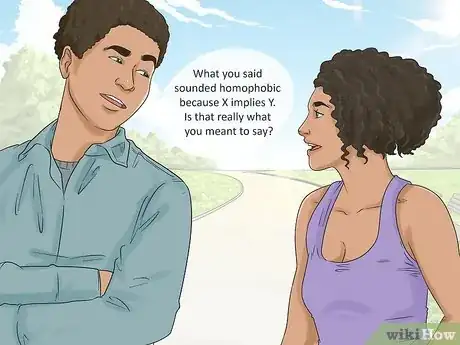

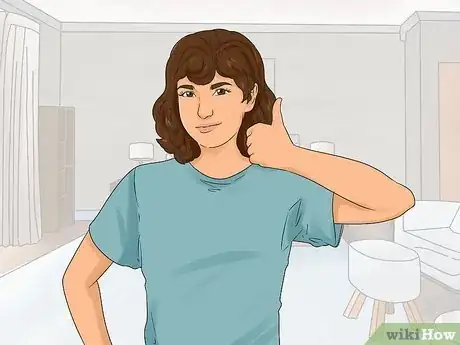


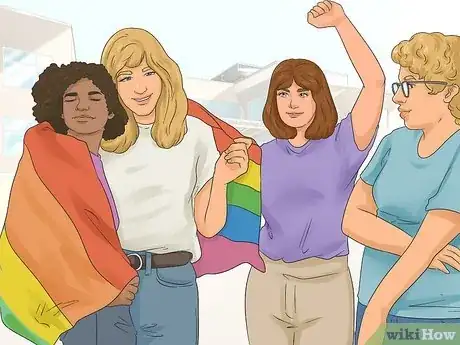


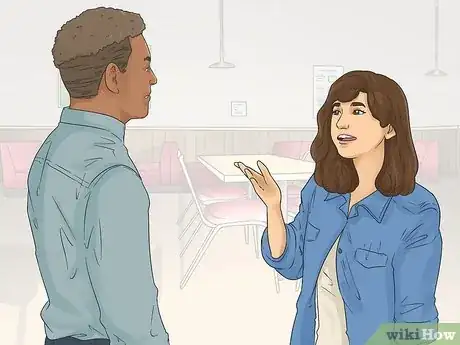
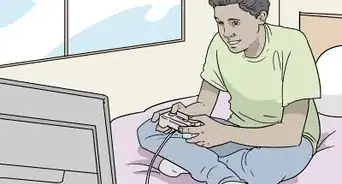


-Step-14-Version-2.webp)
-Step-16.webp)



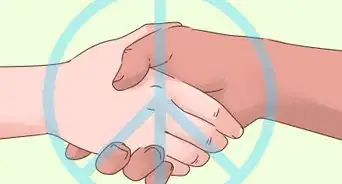




-You-Love-Her-As-a-Girl-Step-16.webp)












-Step-14-Version-2.webp)


































